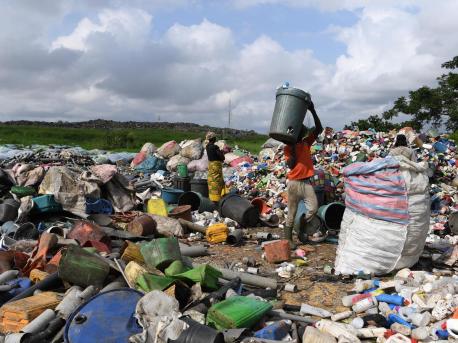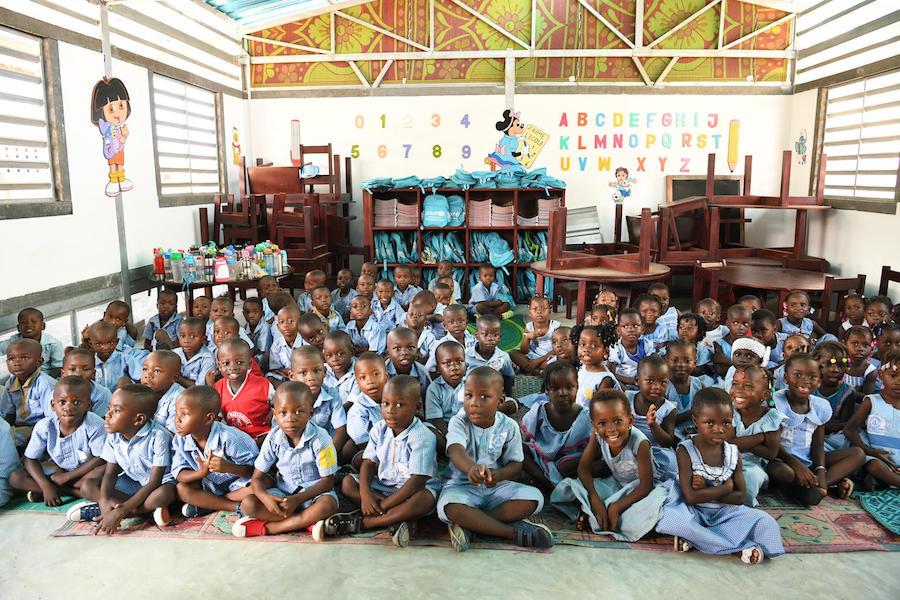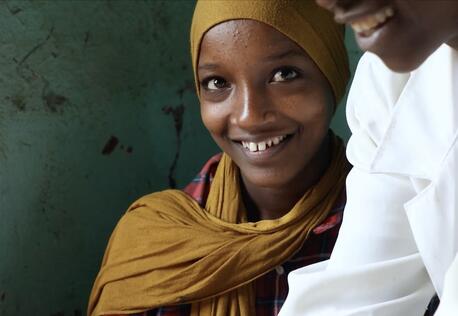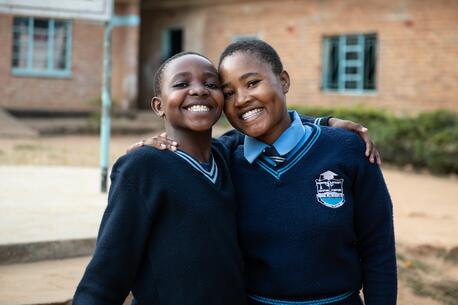
Building Schools From Recycled Plastic Waste in Côte d'Ivoire
UNICEF and partners are working tirelessly all over the world to save and protect children.
With an estimated population of 4.5 million, Abidjan is the biggest city in Côte d'Ivoire and the third-largest French-speaking city in the world, after Paris and Kinshasa. Every day, the Abidjan metropolitan area produces 288 tons of plastic waste.
But what if that trash could be recycled into something useful? UNICEF has partnered with Conceptos Plásticos, a Colombian social business that transforms plastic waste into construction materials to build a better world for children.
"One of the biggest challenges in Côte d'Ivoire remains the large number of children outside the school system," says Marie-Pierre Poirier, UNICEF's Regional Director for West and Central Africa. Schooling is compulsory in Côte d'Ivoire for all children between the ages of 6 and 16, but more than 2 million children are out of school, simply because there are not enough classrooms. Existing classrooms are often filled beyond capacity, with more than 100 students in a class.
So UNICEF used recycled plastic bricks to build a model classroom at a school in Gonzagueville, on the outskirts of Abidjan. In the coming year, UNICEF and Conceptos Plásticos plan to build 30 more new classrooms in Côte d'Ivoire.
"By innovating in construction approaches, through the recycling of plastic waste that pollutes the country, UNICEF can support the government to build quality schools in a very short time and at a very interesting cost," says Poirier.

The new classroom is full of happy children in blue gingham uniforms, eager to learn. For over 70 years, UNICEF has been putting children first, protecting their rights and providing the assistance and services they need to survive and thrive. Because every child has the right to play and learn in a clean environment, and to reach their full potential.
Please help UNICEF save and protect vulnerable children around the world.
Top photo: Abidjan, Côte d'Ivoire produces 288 tons of plastic waste every day. UNICEF and Conceptos Plásticos, a Colombian social business, have partnered to manufacture recycled plastic bricks to build classrooms in Côte d'Ivoire, where more than 2 million children are currently out of school. Photo credits, from top: © UNICEF/UN0250920/Dejongh, © UNICEF/UN0250905/Dejongh
HOW TO HELP
There are many ways to make a difference
War, famine, poverty, natural disasters — threats to the world's children keep coming. But UNICEF won't stop working to keep children healthy and safe.
UNICEF works in over 190 countries and territories — more places than any other children's organization. UNICEF has the world's largest humanitarian warehouse and, when disaster strikes, can get supplies almost anywhere within 72 hours. Constantly innovating, always advocating for a better world for children, UNICEF works to ensure that every child can grow up healthy, educated, protected and respected.
Would you like to help give all children the opportunity to reach their full potential? There are many ways to get involved.





